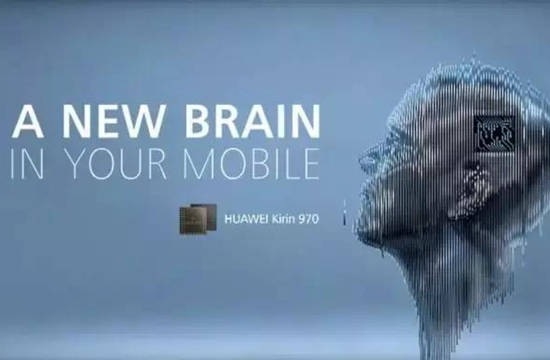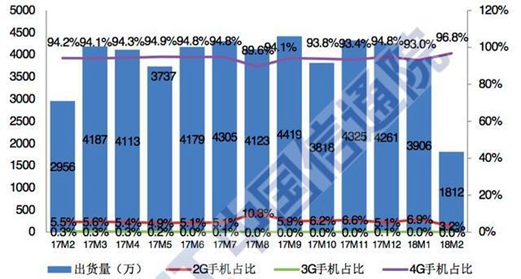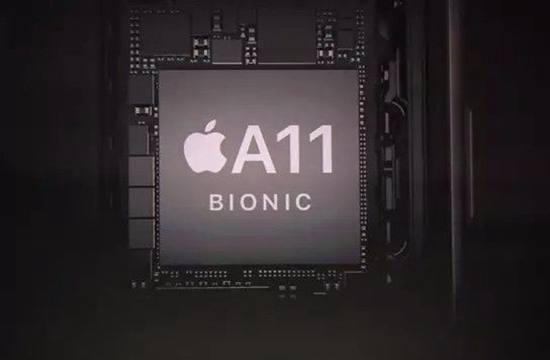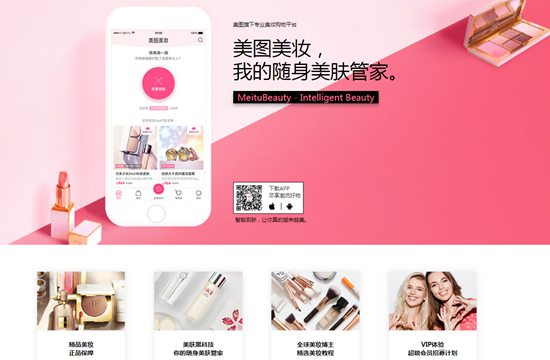The ripening of technology is far faster than it was supposed to be, and sometimes the situation is forcing.
Five months ago, when Yu Chengdong, the head of Huawei's consumer business, predicted that the future mobile phone will move from the era of APP to AI (artificial intelligence), the outside world is more likely to hold a wait-and-see attitude or even question. At that time, it was the "full screen" that occupied the air. As for artificial intelligence, it may be the future, but it is not now.
Five months later, in the flagship models that the world's top smartphone players are intensively releasing or are preparing to release, they all use the slogan “Artificial Intelligence†from Samsung Galaxy S9 to LG V30, and from Huawei P20 to OPPO R15, and Vivo X21 is in the "foreign" artificial intelligence, hoping to get out of a wave of peak sales in the red mobile smart phone.
It is worth noting that the global smartphone shipments are now trembling on the high ropes.
In other words, the smart phone market has reached its peak - in the expectation of shipments of a number of mobile research institutions, the growth rate of mobile phones in the next few years may be in the single digits or even lower data.
It was originally the spring festival of China's traditional consumer season and it did not support the performance of the mobile phone market. For example, in February this year, including the Spring Festival holiday, domestic mobile phone market shipments were 18.12 million units, down 38.7% year-on-year. The data for February this year is not alone either. According to the data released by the China Institute of Information and Communications under the Ministry of Industry and Information Technology, domestic smart phone shipments continued to decline after November 2017, even ending the eight-year high growth trend of domestic smart phones.

Wu Qiang, vice president of OPPO believes that is currently in the "post-smartphone era", that is, before the leading edge technology into the mature commercial phase of the vacant period, also known as the analysis of the agency vacuum period, mobile phone manufacturers need to make some changes, including labor Smart and other cutting-edge technologies do more layouts.
"It must be AI. In the short-term, artificial intelligence on mobile phones will appear as the image of personal assistants. In the long run, the improvement of AI will require the participation of global industry chain companies." Vivo Product Line Manager Han Boxiao on China Business News The reporter said.
AI hardware ecology getting familiar
Han Boxiao also agreed with Wu Qiang’s point of view. He said that the smart phone industry is ushering in a period of great change and opportunity. With the arrival of the 5G Gigabit era, people can interact with the surrounding environment through mobile phones anytime, anywhere, which requires a huge amount of processing power, using traditional Hardware or software logic cannot be supported.
But who can be a replacement for mobile phones? Even the hot smart speakers can't make the answer clear. Regarding "How to Save Mobile Phones," the technology vendors around the mobile phone have started to wake up.

Domestic mobile phone shipments from February 2017 to February 2018. (Source: China Institute of Information and Communications)
Taking the mobile phone AI chip as an example, in 2007 Qualcomm started the artificial intelligence project and began to explore the machine learning pulse neural method for computer vision and motion control applications, and then extended its research scope from the bionic method to the artificial neural network. Although artificial intelligence hardware may be presented in various ways in the future, in Qualcomm's view, artificial intelligence devices are first of all high-performance and low-power devices, and can then use existing wireless communication technologies to realize the use of 5G devices and cloud networks. The smart fits and connections, and these are the areas where high pass has been focused for several years.
Like chip maker Qualcomm, Apple’s placement in the field of artificial intelligence began almost a decade ago. In 2008, Apple acquired PA Semi, a high-performance, low-power processor manufacturer founded in California in 2003, for US$278 million. And two years later, it acquired the Intlsity, a Texas logic design company based in Texas, which was established in 1997 for $121 million. In addition to the chips, from 2010 to date, Apple has also successively acquired dozens of start-up companies, including speech recognition, image/face recognition, and computer vision.
As a Chinese manufacturer, Huawei’s catch-up is not slow. In September last year, Huawei's mobile phone chip Kirin 970, which was only released for two years, was Yu Chengdong's call to "open the key to the 'AI era." He told reporters at the time that now is the era of APP, but the future must be the era of AI.
“Huawei’s R&D investment is continuing to rise, even surpassing many large companies in the United States. The R&D investment in mobile phones surpasses the sum of hundreds of domestic companies. It is only a mobile phone chip that stands behind 10,000 people’s R&D teams. Yu Chengdong told reporters that artificial intelligence has brought a subversion to the experience of smart phones: no touch screen, direct voice operation; artificial intelligence brain, cloud knowledge base, mobile phones with deep learning ability; direct service, no need to check various APP, comprehensive experience direct service.
Looking at the current mobile chip manufacturers on the market, they have completed the layout of AI function chips, Apple A11, Huawei Haisi Kirin 970, Qualcomm Xiaolong 845, Samsung Exynos 9810, and MediaTek P60. Among them, MediaTek's P60 is released for the mid-range handset market, marking the start of the adoption of AI-enabled mobile phones from high-end to low-end.
In fact, the enthusiasm of the industry chain is being mobilized. Among the chip manufacturers from Qualcomm to MediaTek, terminal handset manufacturers from Apple to Huawei and even Samsung have all invested heavily in the AI ​​resource pool. In addition, companies such as Contempt Technology, Shangtang Technology and Yitu Network have grown into super unicorns in the field of face recognition.

AI solution blossoms
IT industry consulting firm Gartner predicts that by 2022, 80% of smartphones sold will have device-based artificial intelligence (on-device AI), which increases rapidly compared to 10% in 2017. However, from the actual development point of view, the terminal AI burst may be faster.
"AI will not only help smart phone manufacturers retain existing users, but also help them win new customers, so AI will be an important means for smart phone manufacturers to differentiate their core products. As the smart phone market gradually shifts from selling technology products to providing Convincing personalized experience, running AI Solutions on smart phones will become an important part of the roadmap for mobile phone manufacturers in the next two years.†Gartner research director Lu Junkuan believes that as smartphones gradually become a commodity, manufacturers are Finding ways to differentiate your product.
For example, Huawei is exploring the integration of cloud services.
Zhang Ping, President of Huawei's Consumer Business Cloud Service, told CBN News that the future mobile phone will no longer be a simple communication tool. All kinds of screen-equipped and non-screen intelligent terminals will become assistants for the integration of the real society and the digital society. Therefore, after the release of the Kirin 970 artificial intelligence processing chip, Huawei also opened the HiAI mobile computing platform to provide the AI ​​computing capabilities of the Kirin 970 to developers and provide a subsidy of 1 billion yuan.
To some extent, Huawei attracts developers with AI, and implements high "subsidies" for developers. It also hopes to narrow the gap between Apple's "application" level and achieve a real breakthrough in service revenue.
Some vendors that have taken root in the subdivision area have already begun to taste “sweetness†on AI.
In October last year, Mito launched a skin inspection based on AI technology to personally recommend the e-commerce platform Mito Beauty to consumers. In the more long-term planning, Mito stated that it will use AI technology to perform "thousands of people" service and customize personalized effects for users.

For more mobile phone manufacturers, the investment in AI is still on the creation of technology itself and ecology.
Taking Vivi's AI intelligent voice assistant Jovi as an example, it is possible to aggregate important information content on the mobile phone, identify important information such as train tickets to remind, and take pictures based on the user's gender, skin quality, skin color and scene lighting, intelligent matching beauty. The Yan program gives a more appropriate beauty advice.
In fact, although the current AI on the terminal is still in the “infant†state, which requires the user to send instructions, the AI ​​on the mobile phone can play a role and perform a “passive reactionâ€, but in view of many interviewees, AI technology can make The mobile phone self-learns based on the user's behavioral habits, and then optimizes, intelligently perceives user scenarios, predicts user behavior, and intelligently allocates resources. More intuitively speaking, with the application of AI in mobile phones, mobile phones are actively observing you and understanding you. The mobile phone was originally a tool, but in the future it will become an outside brain, not just a hardware state.
Fiber Optic Connector,Fiber Connector,Fiber Termination,Fiber Adapter
Huizhou Fibercan Industrial Co.Ltd , https://www.fibercannetworks.com